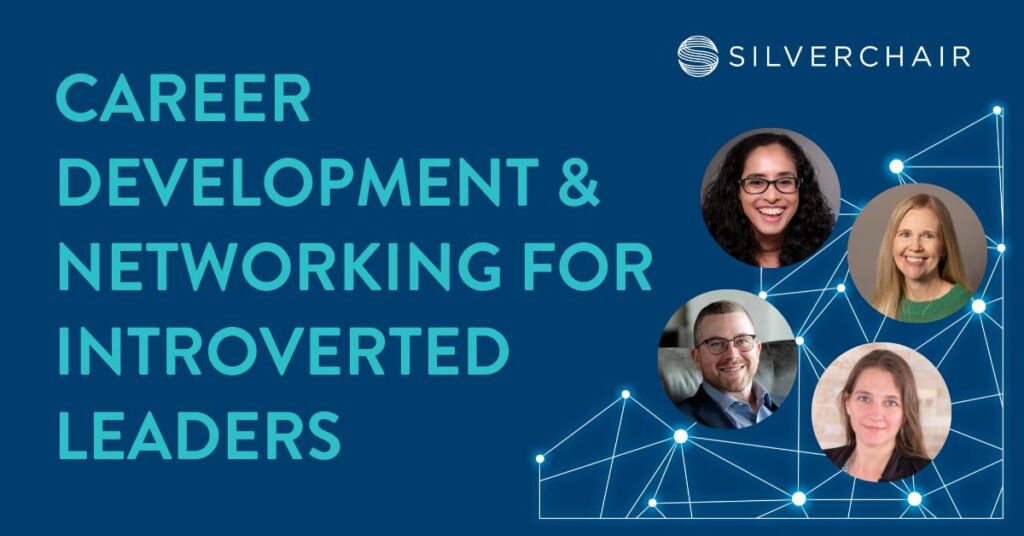
The panel included:
- Julie Nash, Senior Director of Partnership Development at J&J Editorial (moderator)
- Will Schweitzer, President of Silverchair
- Karen Stoll Farrell, Head, Scholarly Communication Department, Indiana University Libraries
- Mithu Lucraft, Senior Consultant, TBI Communications
Still, it can be challenging for introverts to advocate for themselves in the workplace, making their career aspirations and contributions heard and valued. Mithu Lucraft points out that even the path to identifying as an introvert can be challenging, especially given the intersection between introversion and imposter syndrome. You might spend years feeling out of place or feeling like you “need” to do certain things to be successful, when really, you’re judging based on the loudest people in the room instead of recognizing and playing to your own strengths.
Recommendations around getting comfortable with some of this include:
- Practice asking for time to give feedback, rather than feeling pressured to reply on the spot
- Have a conversation with your colleagues on how to engage you to get the best out of you / the introverts on the team
- Identify the communication formats that work best for you for different types of work, and leverage those to make yourself heard
Other often-unseen workplace considerations as an introvert include:
- How do you effectively advocate for your team? How do you advocate for yourself in career progression?
- How do you bring people along with your thinking when you’re in a listening mode?
- How do you build yourself up in a way that is authentic as a presenter?
One big area of discussion both with the panelists and in audience questions was around networking. How can introverts navigate the workplace and make the most of networking opportunities? Some of the replies from the session:
- Recognize that it’s likely not going to happen over drinks or in a large group setting; it’s more likely to happen from working closely with a person who then connects you to others on an individual basis.
- It helps to lean on your extroverted friends and colleagues, aka “the buddy system” as one person joked. Having well-networked mentors who can build connections with you is another way to leverage individual connections in a more comfortable setting.
- Lean into listening as a key skill of introverts and also a key to networking: people love to be heard—let them talk!
- Map out talking points in advance to help ease into a conversation
- Plan ahead to have down time before and after planned networking.
- Empathy
- Listening / active listening
- Problem solving
- Observation / Ability to see things from a unique, non-obvious perspectives
- Analysis
- Record-keeping / note-taking
- Deep relationships
- Big picture-thinking
- Focus
- Influencing on a smaller scale
- Patience
- Remembering people & details
We encourage our introverted readers to join and engage with like-minded individuals.
Some questions from the session to start the conversation with you and your peers:
- How can introverts advocate for themselves in the workplace, making their career aspirations and contributions heard and valued?
- How can introverts make the most of networking opportunities? How can you still be yourself in these situations?
- How does this show up as a manager or different personality types? How do you manage expectations for extroverted direct reports when you’re an introvert?
- What tips do you have for managing “performance anxiety” in meetings, and being articulate on the spot?
Further reading:
- Richard Etienne, Global Internal Communications Director at Elsevier, and all-things-introvert thought leader – (see “Resources”)
- “How to speak up and get noticed: A masterclass for introverts” – upcoming online workshop on September 20th
- BBC, “Why introverts excelled at working from home”
- Forbes, “Introverted Leaders Have Some Surprising Advantages”
- Sidecar Global, “Finding and Empowering Introverted Association Leaders”
- Quiet, Susan Cain
- The Introvert Advantage, Marti Olsen Laney